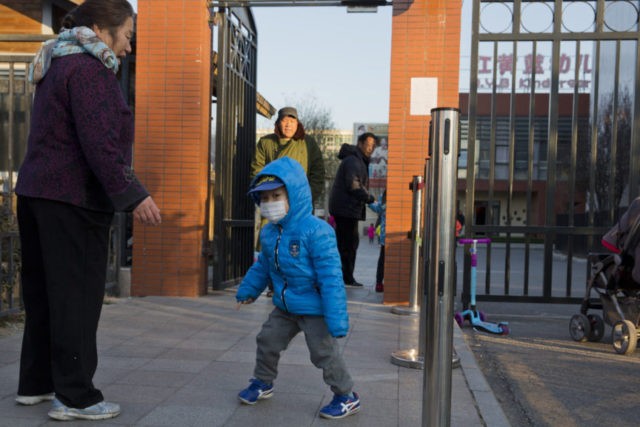China’s Global Times editorialized on Wednesday about the dark side of lifting stern controls on family size in a bid to reverse demographic decline – namely, that women might become “breeding machines” as their families revert to Chinese tradition and pressure them to have a large number of children.
This might seem like an odd concern, since it is the entire point of removing strict limits on family size, assuming Beijing does indeed announce such a policy change, as Bloomberg News anticipated last week.
China is worried that decades of enforced infertility and abortion have left it without enough workers for the high-tech industrial future envisioned by Communist Party head Xi Jinping. Reversing demographic decline will necessarily involve a large number of women giving birth to three or more children. As the American saying goes, it is a feature of the plan, not a bug.
The Global Times seems largely concerned with retroactively justifying the one-child policy, packaging it as an act of state-sponsored feminist enlightenment:
For Chinese women with an awakening awareness for self-development, Bloomberg’s recent news that China is considering an end to all birth limits imposed on families might come as a bomb that may shatter their last harbor for independence in reproductive rights.
Supposedly Chinese women are already chafing under the pressure to have more children after the one-child policy was amended to two children, so all bets are off once the limit is removed entirely:
The news worries many women who believe that, when liberating their rights in deciding how many children they can have, dropping the policy probably will also take something away from them.
“When there is the family planning policy, women who don’t want to have a second or third child can use the policy as an excuse. But if the policy becomes invalid, they would lose this line of defense and have to directly confront their traditional families and society at large,” Wei Tingting, founder of the Guangzhou Gender and Sexuality Education Center, told the Global Times.
In Chinese traditional views, having more children in a family has always been regarded as the right thing to do.
More importantly, given the current unfavorable situation for women in the local job market, the speculation has led many women to worry for their careers.
“Under the one-child policy, employers asked female job hunters when they intended on having a child. Under the two-child policy, employers are concerned when they will have a second one. If there is no policy at all, what will they ask and how to answer them?” questioned Ding Kai, a lawyer, on Weibo.
The rest of the world has found ways for women to balance careers and motherhood, although it would be fair to note that most societies are wrestling with difficult conflicts between economics, ideology, and biological reality. The United States, for example, is periodically convulsed with “wage gap” controversies that ignore the tendency of women to choose less risky jobs or take time away from the workforce for motherhood in order to argue that misogyny forces women to earn 70 cents on the male dollar.
China has been criticized for actual, overt sexual discrimination in job advertising, ranging from puerile sexism about staffing offices with pretty girls to postings that specify only men or women who already have children need to apply, because the companies did not want to hire women who might have to leave the job for months to bear children. The Global Times speculates that lifting the two-child limit could put young childless women at a profound disadvantage in the job market compared to those who already have children, even if the discrimination becomes more subtle.
“As a result, many Chinese women now see the positive side of the former one-child policy that they once resented,” the Global Times declared, revealing the true mission statement of the editorial.
With that political marker down, Beijing will attempt to fend off years of criticism that the one-child policy was “barbaric” and “brutal” by using the language of contemporary Western feminism and environmentalism to look on the bright side of forced abortions. Even Vice President Joe Biden tried to warn a Chinese audience during the 2012 presidential campaign that their one-child policy was “not sustainable,” after some obsequious toadying about how he “fully understood” the thinking behind the policy and was not interested in “second-guessing” the Politburo.
If China’s leadership really wants to reverse the country’s demographic decline, it will quietly hope women listen to their allegedly grandchild-hungry mothers instead of Party news magazine editorials.

COMMENTS
Please let us know if you're having issues with commenting.